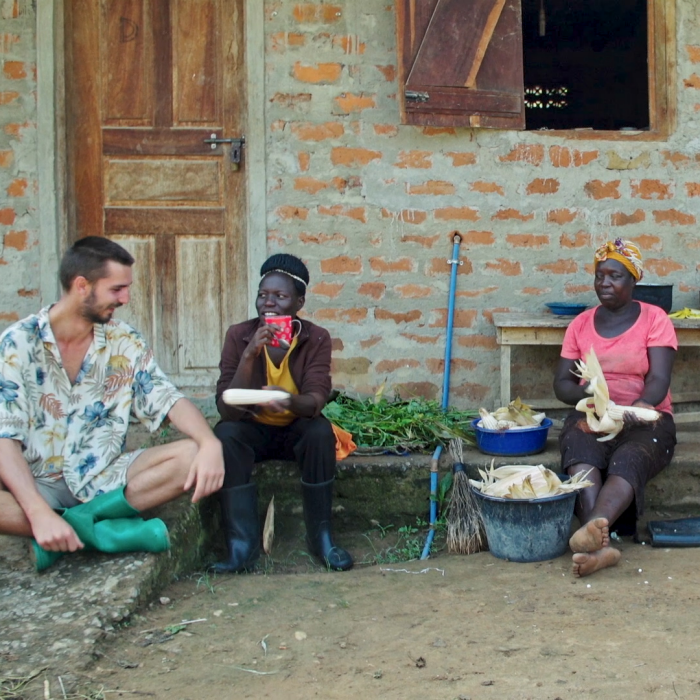Humanitarian Engineering Minor

Are you studying Engineering so you can truly make a difference in the world?
The Humanitarian Engineering Minor (ENGGA2), opens in a new window covers a breadth of humanitarian activities from disaster response and preparedness to long-term sustainable community development within Australia and overseas. It is a complementary skill to existing engineering disciplines and prepares you to work in challenging and diverse situations to help disadvantaged and disempowered communities and individuals.
Students must take a minimum of 24 UoC from the courses listed below to complete the Humanitarian Engineering Minor. Please note that not all engineering streams are compatible with this minor offering.
Humanitarian Engineering Minor - Program Structure
The program structure for the Humanitarian Engineering Minor is as follows:

-
Students must take the following three 6UoC core courses:
ARTS2755, opens in a new window - Global Development in Practice: Concepts and Practices for Inclusive Development
ENGG3001, opens in a new window - Fundamentals of Humanitarian Engineering
ENGG4102, opens in a new window - Humanitarian Engineering Project *
*With approval from the Humanitarian Engineering Minor Coordinator, Dr. Andrew Dansie, a student may substitute ENGG4102 Humanitarian Engineering Project only with another suitable humanitarian project/thesis topic completed elsewhere (e.g. Thesis or Project Course). Where a 12 UoC Thesis is substituted, only 6 UoC counts towards the minor, in place of ENGG4102.
-
Students may take up to 6UoC of the following elective courses:
MINE3910, opens in a new window - Socio-Environmental Aspects of Mining
CEIC4000, opens in a new window - Environment and Sustainability
CVEN4701, opens in a new window - Planning Sustainable Infrastructure
ENGG4103, opens in a new window - International Humanitarian Response
FOOD4104, opens in a new window - Food and Health Security
SOLA5056, opens in a new window - Sustainable Energy for Developing Countries
-
Single Degree Bachelor of Engineering (Honours)
DisciplineStudents completing the following majors can complete the minor within their program requirements - Chemical Engineering
- Chemical Product Engineering
- Civil Engineering
- Photovoltaics and Solar Energy
Students completing the following majors can complete the minor if they substitute ENGG4102 Humanitarian Engineering Project* only with another suitable humanitarian project/thesis topic completed elsewhere (e.g. Thesis or Project Course). Where a 12 UoC Thesis is substituted, only 6 UoC counts towards the minor, in place of ENGG4102.
*With approval from the Humanitarian Engineering Minor Coordinator, Dr. Andrew Dansie,
- Environmental Engineering
- Aerospace Engineering
- Mechanical Engineering
- Mechanical and Manufacturing Engineering
Students completing the following majors cannot complete the minor within their program requirements. Some streams may be eligible to complete the minor where course substitution is approved by their Program and Stream Authority.
- Bioinformatics
- Computer Engineering
- Electrical Engineering
- Mechatronic Engineering
- Mining Engineering
- Petroleum Engineering
- Renewable Energy Engineering
- Quantum Engineering
- Software Engineering
- Surveying
- Telecommunications
Program coordinator
Assistance for mapping your degree
For assistance on how to include this minor into your degree or to request a project substitution for ENGG4102, opens in a new window, please contact Dr. Andrew Dansie.
Additionally you can also reach out to Student Support Services to check your eligibility and declare the minor in Humanitarian Engineering via the Stream Declaration service, opens in a new window in myUNSW.
Researcher testimonial

“There is a real need to create ‘global citizen engineers’ who can address humanitarian problems faced by societies around the world.”
Dr Fiona Johnson
UNSW Civil and Environmental Engineering

